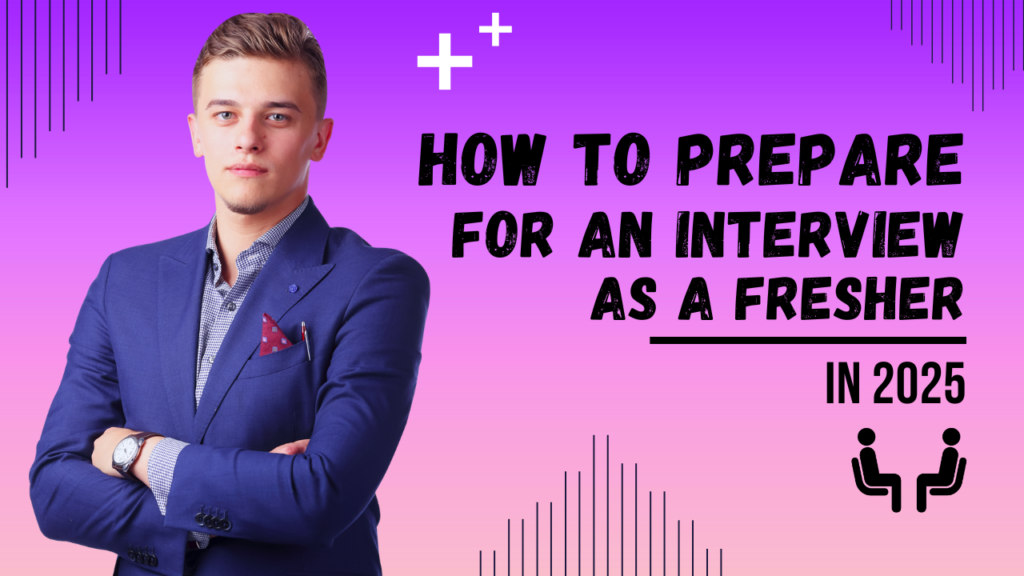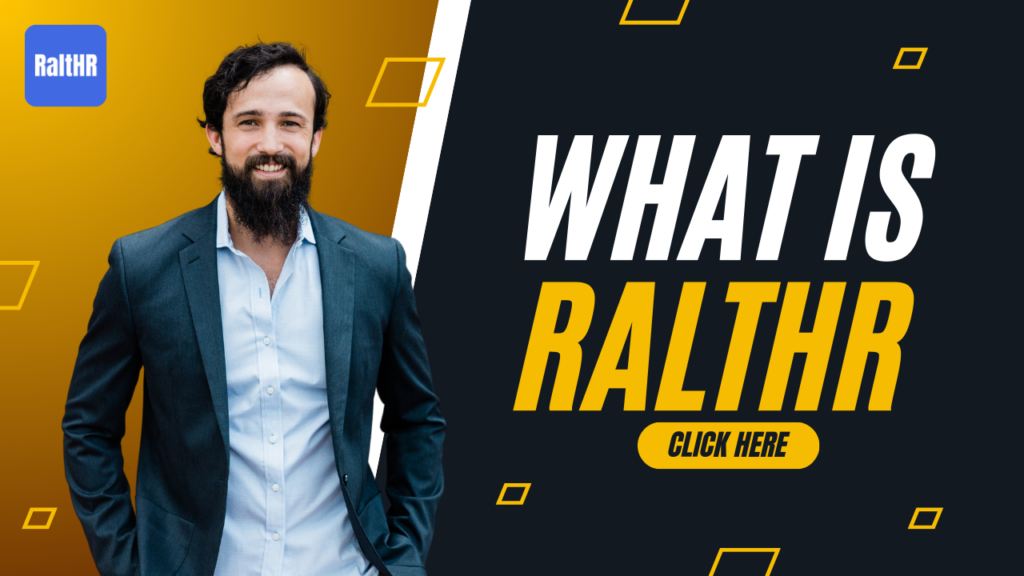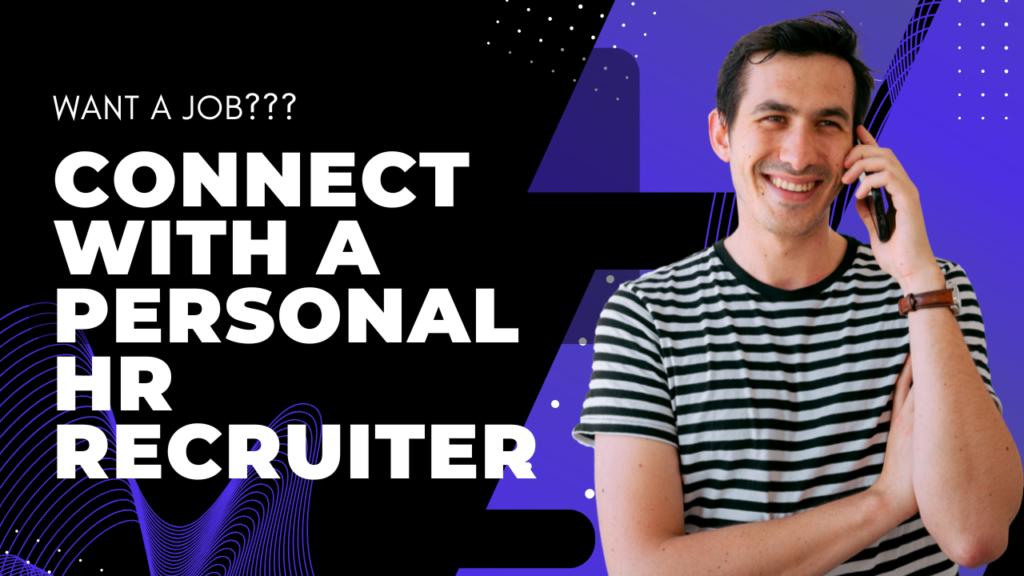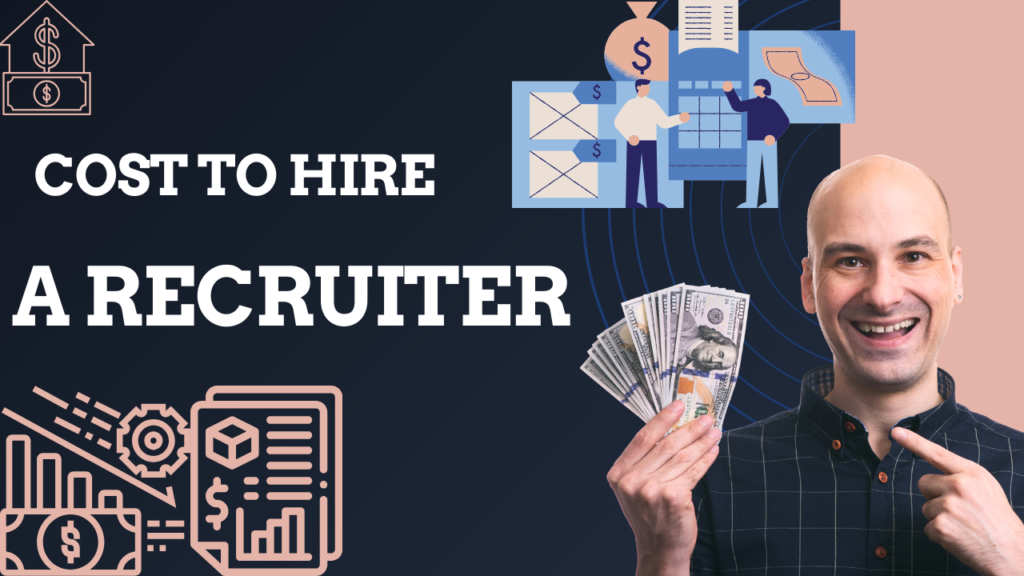When you enter the competitive job market as a fresher it can be both intimidating and exciting at the same time. Interviews are an essential step to having a secured first job and to prepare for an interview is an effective one. Knowing how to prepare for an interview as a fresher will help you to be more confident about it. Here is an article which will help you to prepare for an interview.
Tips on How to Prepare for an Interview

Here are some tips for freshers on how to prepare for an interview which will boost your chances of having a secured job:
1. Understanding the job role
The step to prepare for an interview is to understand the job role you have applied for. Know about the requirements and description of the job thoroughly and make sure to identify the skills, responsibilities, and qualifications that are required for this job role.
Make certain that you highlight the skills and experiences that are listed in the job description which matches with your projects, extracurricular activities, academic accomplishments, and internships. If the job role demands problem-solving skills then showcase the times you have demonstrated these abilities in yourself during competitions.
2. Research about the company
It is important to learn about the company so you can show your enthusiasm and genuine interest in the job title. Potential employers value the candidates who know about how their industry and organizations function in and out. When you prepare for an interview it is must to know about the company.
You should visit the official website of the company to understand its values, services, mission, and products. Read the relevant articles according to the press about the functions of the company. Be prepared to answer questions like why you want to work for the company.
3. Common Interview Questions
It is likely that as a fresher you can encounter common questions about your skills, education, and aspirations. To prepare for an interview the common questions are:
- “Tell me about yourself”: Be concise about the answer, including your introduction, skills, education, and accomplishments.
- “What are your strengths and weaknesses?”: here you have to mark your strengths that align with the job role and mention a weakness that you are working on to improve.
- “Where do you see yourself in five years?”: Make sure that your answer aligns with the goals of the organization.
4. Have a strong resume.
A well-customized resume is the first best impression you can have on the potential employer. Make sure it is crafted according to the job title which also aligns with your strengths. Make sure to include the important key components when you prepare for an interview, like:
- Contact information like your phone number, name, and professional email address.
- Skills like soft and technical ones that align with the job role.
- Educational background name your degree, college/university, and academic accomplishments.
- Experiences if any like mark your internships, academic projects, and part-time jobs.
- Certificates which include any online course or relevant certifications that you have completed.
5. Prepare for situational and Behavioral questions.
Interviewers often ask some behavioral and situational questions like how will you handle any situation. Then, you have to use the STAR method which is “situation, task, action, and result” to form your answer accordingly. Sample question “Mention a time when you have worked as a part of a team”, here mention the situation like when you worked on a project, what was your task during that time, what were the actions you did, and what was the result of the task.
6. Practice mock interviews
Mock Interviews help improve your soft and communication skills so you can have more confidence during the actual interview day. You can ask a mentor, career counselor, or even a friend to help you conduct a mock interview when you have to prepare for an interview. The benefits you get from mock interviews are that you get feedback on how you have performed, know what are the areas you need improvement in and you get comfortable and confident while answering questions in a pressured situation.
7. Professional dressing
Your professional attire matters as it gives the first impression of how you are perceived. Choose your clothes according to the culture of the company like smart casual or formal for creative organizations. Some tips for professional dressing are:
- Make sure your clothes are well-fitted, clean, and wrinkle-free.
- Go for neutral colors like navy, black, or gray.
- Pay more attention to grooming like polished shoes and neat hair.
8. Prepare your documents
Make sure that you have all the necessary documents and carry them all in a professional folder. Some of them are:
- Academic certificates and transcripts.
- Copies of your resume.
- Some ID proofs like a driver’s license or passport.
- Some work samples if any.
9. Develop communications skills
It is essential to have effective communication skills which are very crucial during an interview. You have to make sure to focus on both verbal and non-verbal communication. Here are some communication tips:
- Speak confidently and clearly.
- Don’t use phrases like “um” or “like”.
- Show engagement by making eye contact.
- Sit upright and smile whenever needed to showcase open body language.
10. Ask thoughtful questions
Interviews are always a two-way process. So, keep asking questions that demonstrate your genuine interest in the role which will help you to determine that the organization is the right fit for you. Some sample questions to ask are:
- What does success look like in this position?
- Can you explain a formal day in this job role?
- Are there any openings for developing professionally?
11. Send a Follow-Up Email after the interview.
It is essential to send a thank-you email after the interview which shows appreciation and professionalism. Here are what you should include in the email:
- Repeat your interest and enthusiasm about the role.
- Mention the specific detailed point about the interview.
- Showcase your gratitude for the opportunity for the job role.
12. Learn from every interview.
If you do not get the job, make sure that you treat this opening as an opportunity for learning new things. Showcase your performance and make sure you improve your areas. Here are some key questions to ask yourself after the interview:
- Did I show my work experience and skills effectively?
- How can I improve for future interviews?
- What were the questions I struggled to answer?
Conclusion
To prepare for an interview as a fresher can be quite hectic so it requires a combination of practice, research, and self-confidence. By having a well-crafted resume, a job role, and good communication skills, you can have boosted confidence. Remember that every interview is a step closer for a fresher to get a successful career, so make sure you enjoy and embrace the process.
FAQs
What should I include in my resume?
Your educational background, academic projects, internships, skills, certificates, or any extracurricular activities that align with the job role.
How Can I Improve My Communication Skills?
Focus on clear articulation, practice common questions and interviews, make sure to maintain eye contact to show engagement, and work on both non-verbal and verbal communication.
How Should I Research the Company?
Read about their products, visit their official website, and know the description of the job, their mission, understanding, and values.
How to handle stress before an interview?
Focus on preparation, practice deep breathing, visualize success, and make sure you remind yourself that giving an interview is also an opportunity to learn about new things no matter what the outcome is.



